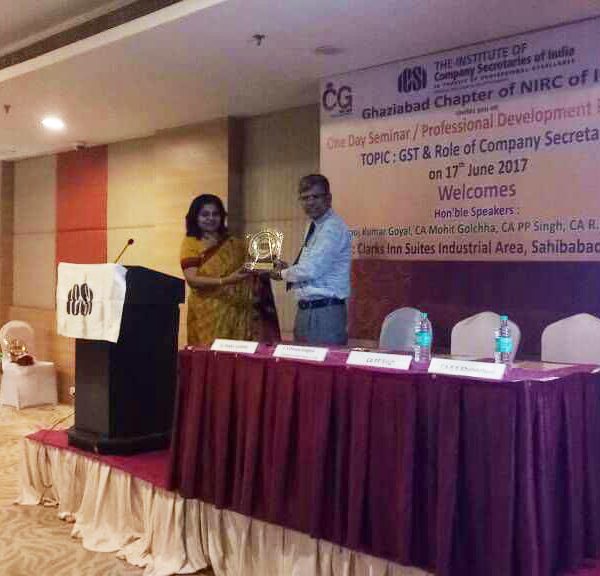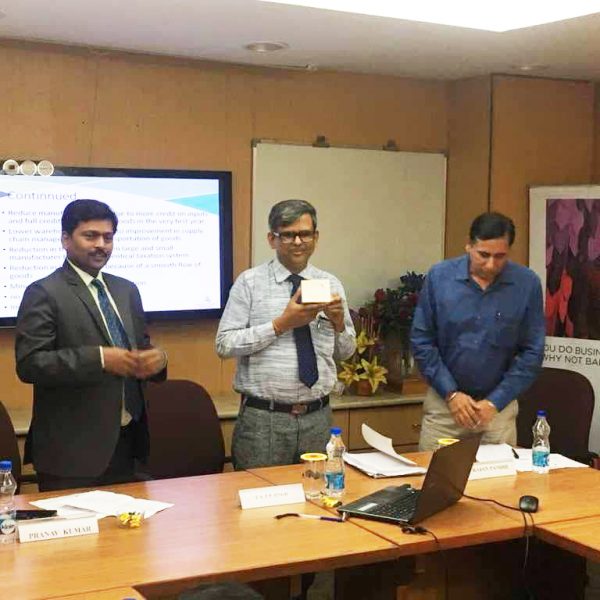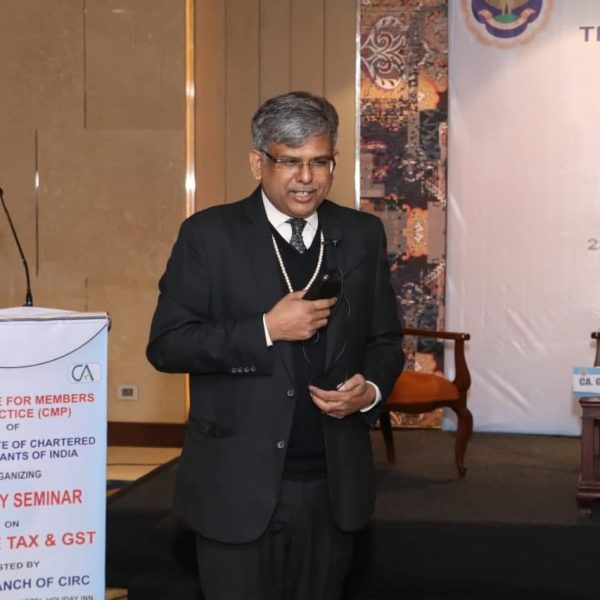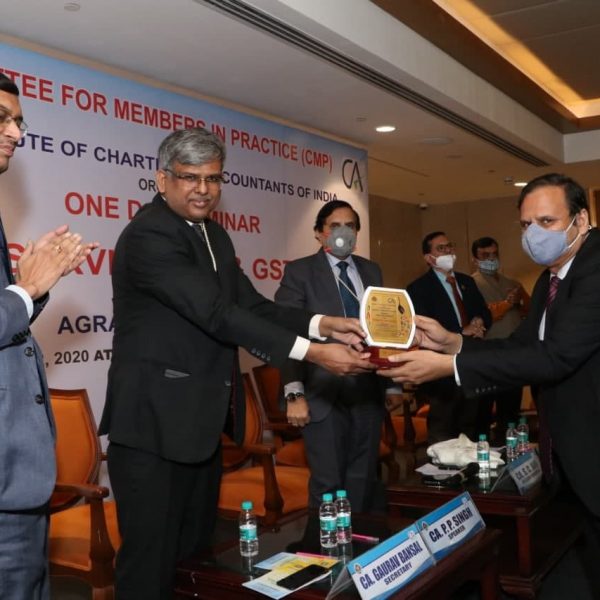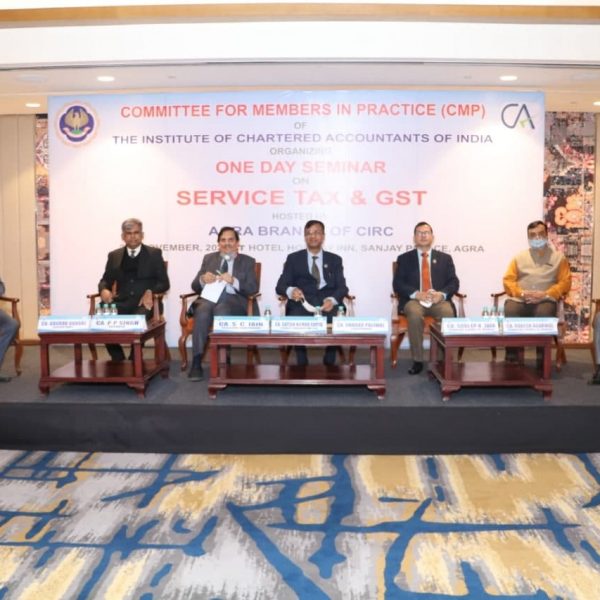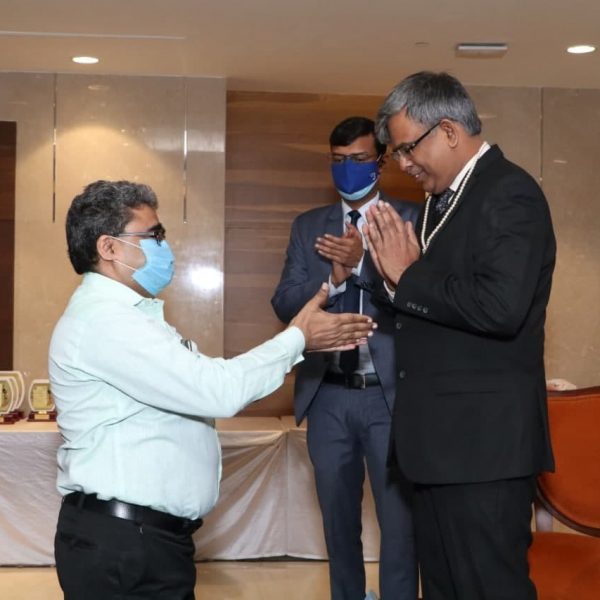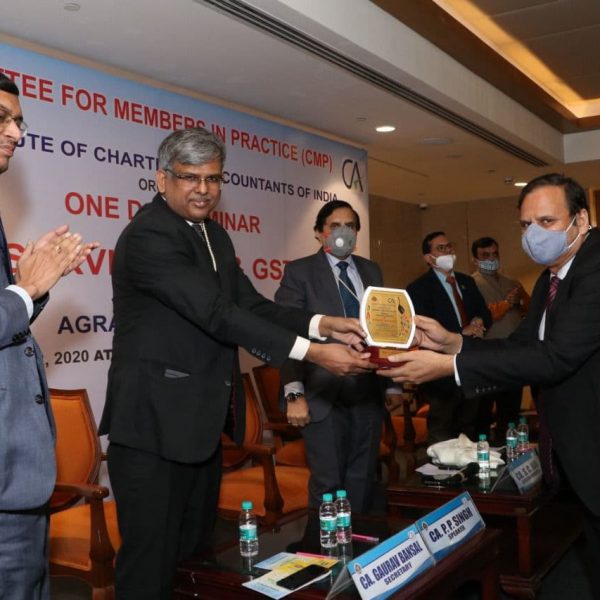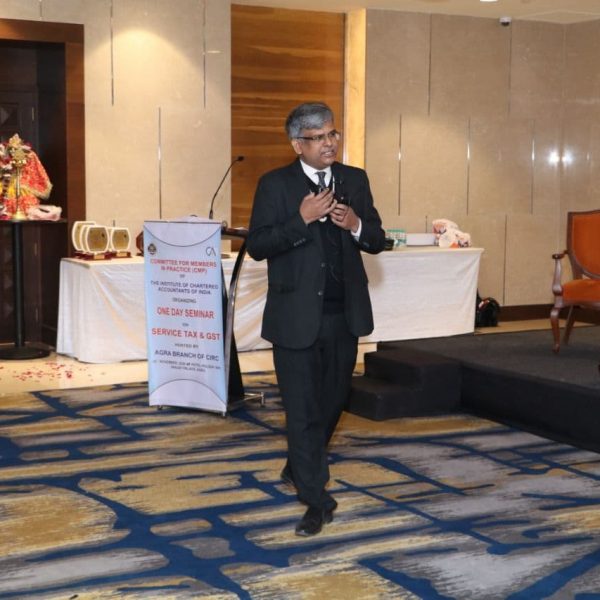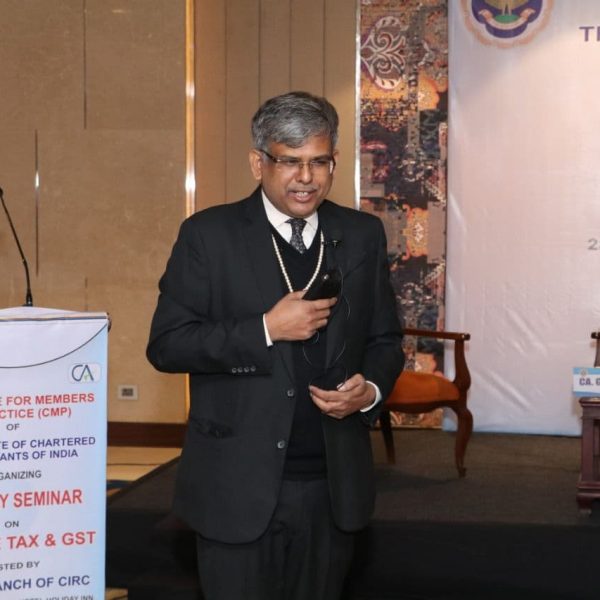Introduction: The doctrine of natural justice is not only to secure justice but to prevent miscarriage of Justice. Its essence is good conscience in a given situation nothing more nothing less. It is applicable almost everywhere in our lives and almost every statute has provisions to safeguard this doctrine, particularly in the taxiing statute as huge demand for tax, interest, and penalty against the assessee seriously affects the continuity of business itself. therefore effort has been made to explain the concept in a lucid and pragmatic way with leading case laws. We found wording in the various statutes such as the opportunity of being heard etc for this doctrine.
The doctrine of natural justice has three propositions:
- Nemo debet esse due judex in propria causa means no person shall be a judge in his own cause .i.e deciding authority must be impartial and without bias.
- Audi alteram partem: no man should be condemned unheard or there must be fairness on the part of the deciding authority. there must be a procedure adopted to provide an opportunity of being heard to the party before deciding on an issue.
- Speaking order or Reasoned order
Nemo debet esse due judex in propria causa: this principle is based on the basis that there must be the absence of bias, interest, or prejudice. this is based on the maxim that
- No man should be a judge in his own cause. I.e judge must be impartial neutral and unbiased.
- Justice should not only be done but it must be seen to be done
- judges should be above suspicion
Type of Bias:
- Pecuniary bias- where the deciding authority has any interest in any of the parties
- Personal bias- deciding authority may be relative or in any other way associated with any of the party-raising issues.
Leading Case laws:
Baidyanath Mahapatra v State of Orissa, AIR1989 SCC664, the supreme court quashed the order of the tribunal confirming premature retirement on the ground that the chairman of the tribunal was also a member of the review committee which had recommended premature retirement.
Ramanand Prasad singh v Union of India AIR1996 SCC64, the supreme court held that participation in the selection committee as a member where his brother was a candidate but was not selected his inconsequential bias on which the whole select list cannot be quashed.
A.K Kraipak Vs. UOI (1969)AIR (SC): In In this case one candidate N was the candidate for the Indian forest service and was also in the board for selection although he was not there when his name was considered. The candidates who were not selected filed a writ for quashing the selection of such candidates on the ground of the principle of natural Justice being violated. Quashing the selection Hon’ble Supreme Court observed that the real question is not whether he was biased or not but, It is difficult to prove the state of mind of a person and it is likely to have been biased. It is a case of actual biases versus possible biases. Both must be avoided unless there is no option to avoid them.
- Mohapatra Vs.State of Orissa (1984) SC
Committee was set up for selecting books for educational institutions. In this committee there were some of the authors whose books were to be selected Honorable Supreme Court has observed that there is the possibility of bias Which could not be ruled out and therefore It is a case of possible bias.
- Subject matter bias- where deciding authority has some interest in the subject matter itself
Leading Case laws:
Jeejeebhoy v collector AIR (1965) (SC) 1096, the chief justice reconstituted the bench when it was found that one of the members of the bench was a member of the cooperative society for which the land had been acquired. The Madras High Court also quashed the decision of the collector who in his capacity as the chairman of the Regional Transport Authority had granted a permit in favour of a cooperative society of which he was also a chairman.
Muralidhar v Kadam singh and others AIR (1954) MP HC, the court refused to quash the decision of the Election Tribunal on the ground that the wife of the chairman of the election tribunal (Mr. Pagnis) was a member of the Congress party whose candidate the petitioner defeated as no facts of bias brought on record.
- Departmental Bias:
Case laws: Hari K. Gawali v Dy. Commr. of Police AIR 1956 (SC) 559. In this case, an externment order(order restraining a person to enter a particular area) was challenged on the ground that since the police department which initiated the proceedings and the department which heard and decided the case were the same, the element of departmental bias vitiated administrative action. The court rejected the challenge on the ground that so long as the two separate officers, though they were affiliated with the same department, there was no bias.
- Policy Notion Bias – such bias arising out of preconceived policy notions is a very delicate problem of administrative law. On one hand, no judge as a human being is expected to sit on a blank sheet of paper, and on the other, preconceived policy notions may vitiate a fair trial.
Case laws: Bajaj Hindustan Ltd. V . Sir Shadilal enterprises ltd., 2011 (2) KCCRSN 153, 2010 (12) SC the, Hon’ble supreme court did not allow a challenge to administrative action on the ground of policy bias.
- Preconceived Notion Bias-every person’s personality is a combination of his biological and social heredity which determine his values and attitudes in a way that may condition his decision-making process. The problem of unconscious bias is such which is inherent in any adjudication and cannot be eliminated unless detected by someone over the action of the authority, If is so detected can vitiate an administrative hearing if it has a direct relation with the decision. This may include a situation where the deciding officer openly expresses his prejudice.
- Bias on account of obstinacy. This new category of bias of obstinacy means refusing to change opinion/stubbornness was discovered in a situation where a judge of the Calcutta high court upheld his own judgment while sitting in an appeal against his own judgment. Of course, it is a direct violation of the rule that no judge can sit in an appeal against his own judgment is not possible, therefore, this rule can only be violated indirectly. In this case, in a fresh writ petition, the judge validated his own order in an earlier writ petition which had been overruled by the division bench. what applies to the judicial process can be applied to the administrative process as well. State of West Bengal Vs. Sivananda Pathak (1998) 5SCC513.
The exception to bias: The doctrine of necessity and doctrine of absolute necessity
Necessity excludes bias and therefore an adjudicator who is disqualified on account of bias may nevertheless can validly adjudicate if
- No other person competent to adjudicate is available
- A quorum cannot be formed without him
- No other competent trial can be constituted
in such a situation rule against bias has to give way to the necessity of the hour. where decision-making is urgently required and no unbias adjudicator is available in such a situation action of bias adjudicator is valid.
example: A particular statute empowers a particular Minister or officer to do certain acts. if the doctrine of necessity is not allowed, the defaulting party would be benefited and the aggrieved person’s situation become worse or even worst due to inaction.
Case laws:
- Gullapali Nageshwar Rao vs APSRTC (SC): In this case, there was a bus route nationalization policy made by the secretary of transport of Andhra Pradesh which was opposed by private bus owners, grievance firstly heard by the transport secretary Himself and if rejected bus owner may approach to the ship Chief Minister of the state who was Transport Minister also and statute empower the chief minister to hear and pass necessary order. High Court validated the action of the Chief Minister against official bias based on the doctrine of necessity which was duly confirmed by the Honorable Supreme Court.
- Ashok Kumar Yadav Vs. State of Haryana (SC): in this case, a relative of a member of the Haryana state public service commission was interviewed and a letter on the personal relationship was alleged as a ground to strike down the decision of the Selection Board. no other person could be substituted in his place. committee constituted under 316 of the Constitution of India, If not done function of the public service commission may be affected. Hon’ble Supreme Court to invoke the doctrine of necessity.
- Tata Cellular Vs. UOI 1996 AIR 11, 1994 SCC (6) 651.The government invited tenders to establish a network in 4 metro cities. The evaluation committee to evaluate the tender consists of DG Telecommunications and It was not possible to have a selection committee without DG Telecommunication. His son’s Tender was also under evaluation before the committee and there was no choice of substitution of D.G telecommunication, hence the decision of the committee cannot be struck down based on bias.
- The doctrine of absolute necessities: Election Commission of India vs. Dr. Subrimaniam swami (SC) In this case issue was the disqualification of Jai Lalita then CM of Tamilnadu under Article 191 of the Constitution of India. The election commission consists of the chief election commissioner T.N session and 2 other members. Dr. Subramaniam swami who is a friend of T.N. session and Dr. Swamy has raised the issue. It was decided that the remaining 2 election commissioners should decide the matter which Supreme Court also confirmed that the T.N. session should not give any opinion in this case.
Audi alteram partem
Meaning: This is a Latin term that means to hear the other side also or no man should be condemned unheard or both sides must be heard before taking any decision. in other words, a reasonable opportunity of being heard must be given to all the parties. Important elements of this doctrine are
- Notice and
- Hearing
Notice: Before taking any adverse action against the affected party, the affected person must be given a show Cause Notice of the proposed action and seek an explanation. Any order passed without giving notice is against the principle of natural justice and therefore void ab intio.In tax laws such as in service tax, the GST department generally issue a show cause notice before the final order. Similarly, under income tax laws department issue show cause notice before the addition or imposition of a penalty.
Important aspects of notice and leading Case laws:
- R. Vs. The University of Cambridge: In this case, one doctor Bentley was deprived of his degree by Cambridge University on account of alleged misconduct without giving notice or opportunity of hearing. the court of the king’s bench declared the decision null and void.
- Northern Rly. Coop. Credit Society Vs. Industrial Tribunal (AIR) (1967)(SC) 1182/B D GUPTA State of Haryana: Even if there is no provision in the statute about giving notice if the order in question adversely affects the right of an individual, the notice must be given. The further notice must be clear, specific, and unambiguous and the charges should not be vague and uncertain.
- The notice must provide reasonable time to comply: thus to give only 24 hours time to dismantle the structure is not a proper and valid notice as decided in the case of the State of J and K versus Haji Wali Mohammad (1972)(SC)
- Notice for one charge but penalty for others not mentioned in the notice is invalid and is against the principle of natural justice as no opportunity of being heard was given to him. Lt. col K.D.Gupta Vs. UOI (1989)(SC)
- Provision of serving notice is missing in the statute- whether notice required to be served? yes, Olga Tellis Vs. Bombay Municipal Corporation (1985)(Supreme Court) ruled that eviction of pavement dwellers using unreasonable force, without giving them a chance to explain is unconstitutional. even though the statute empowers a commissioner to remove unauthorized construction without notice, even then Court held that demolition without notice is against natural justice. The proposition that notices need not be given of a proposed action because there can possibly be no answer to it, is contrary to the well-recognized understanding of the real import of the rule of hearing. That proposition overlooks that justice must not only be done but must manifestly be seen to be done and confuses one for the other. The appearance of injustice is the denial of justice.
Important aspects of hearing and leading Case laws
- State of Orissa Vs. Bina Pani devi (SC)(1967): Even in the case of purely administrative function, if somebody’s right is affected principle of natural justice must be followed. Since no opportunity of being heard is given before passing an order so violates the principle of natural justice. Here there was the issue of furnishing the wrong date of birth in employment.
- Maneka Gandhi Vs. UOI (1978)(SC): In this case, the passport of the petitioner journalist was impounded by the government of India in the Public Interest. no opportunity was given to the petitioner before impugned action so the honorable Supreme Court held that it is a violation principle of natural justice.
- Non-disclosure of material and evidence by the adjudicating authority- order null and void. the adjudicating authority must disclose all evidence and materials placed before it in the course of proceedings and must afford an opportunity to the person against whom it is sought to be utilized so that opportunity must be affordable to the person to enable him to prepare his defense, rebut the Evidence relied upon by the complaint against him and put forward his case before the adjudicating authority. Examples may be provisions made in tax laws such as sharing of material and information before reopening of assessment under income tax.
Case laws:
- Daksheshwari cotton mills Limited versus CIT (AIR) (1955) Supreme Court: Supreme Court has set aside the order of the tribunal on the ground that it did not disclose some evidence produced by the department and used against the assessee so no opportunity of being heard to the assessee.
- Bishwambhar Nath Kohli Vs. State of UP (1966) (SC): in revision proceedings, the custodian General accepted new evidence produced by one of the parties which was not shared with the opposite party. The Honorable Supreme Court held that the principle of natural justice was violated.
- Due to non-disclosure, some prejudice must be caused to the party. if no prejudice is caused due to non-sharing it may be covered in empty formality theory. Krishi Utpadan Mandi Samiti Vs. Ved Ram (2012)(SC)
- How many times opportunity to be given? in the case of Jain Exports Private Limited Vs. Union of India (1988) Supreme Court, it was held that extent of opportunity of hearing does not depend upon the quantum of loss to the aggrieved person nor referable to the quantum of the stake but relatable to the demands of the situation. Therefore if a show cause notice is issued and an explanation is considered before taking action, rules of natural justice cannot be said to be violated on the ground that more opportunity should have been afforded as a huge amount was involved.
Note: In the very first submission all the important information and evidence must be mentioned also request to grant some more time to supply more evidence along with the reason for the delay so as to get more opportunity as the limit on the number of adjournments to give more time valid.
- One who decides must hear the case: the objective is that all the objections raised and all the submissions whether oral or written must be considered before deciding the issue. For example if any change in the assessing/adjudicating officer, the new officer always issue notice before any decision.
Case laws:
- Gullapalli Nageswara Rao versus APSRTC (1959)(SC): one person was hearing and another person was deciding the case and that to the personal hearing become an Empty formality.
- Ossein And Gelatin Manufacture Association Vs Modi Alkalios And Chemical Ltd 1980(SC) In this case hearing was afforded by one officer but the order was passed by another officer. observing that officer who had passed the order had taken full note of all objections raised by the petitioners and considered all the pros and cons of the matters and therefore the order was upheld.
- Cross-examination: cross-examination was never considered to be part and parcel of the doctrine of natural justice. it always depends upon the facts of each case. (a) If a statute permits cross-examination of witnesses examined at an inquiry or identification opposite party can claim the right to cross-examination (b) If the statute is silent- if the other party is unable to Defence due to lack of information about the alleged charges cross-examination is mandatory.
Case law: State Of Kerala Versus Katy Shanduli Grocery Dealer (1977) Supreme Court: In this case, the assessee files the sales tax return based on his books of accounts. the allegation was that as per STO, books of accounts are incomplete and incorrect since certain sales appearing in the books of account of a wholesale dealer were not mentioned in the books of accounts of the respondent. cross-examination of wholesale dealers asked for was rejected by STO. it was held by the honorable Supreme Court that the decision of STO is illegal because the respondent could prove the correctness and completeness of his return and books of account only if he was allowed the opportunity to cross-examine the wholesale dealer.
K L Tripathi Versus State Bank Of India (1984) Supreme Court: Where the credibility of a person who stated something in the dispute, the right of cross-examination is inevitable otherwise it will not be fair play in action. Note: while asking for cross-examination there must be a dispute of the facts and also we must mention the reason that if cross-examination will be denied there will be a case of unfair play and injustice to the respondent.
- Oral/personal hearing: where an oral hearing is mandated in the statute itself -Oral hearing is a must, however where an oral hearing is not mandated in the statute- a person is not entitled to an oral hearing as a matter of right but the adjudicating officer may allow an oral hearing.
Leading Case laws:
M.P Industries Limited Vs Union Of India (1966) Supreme Court. Before taking a decision adverse to a party effective opportunity for the party is a must but effective opportunity need not necessarily mean a personal hearing. It can be by way of written representation. Whether the opportunity should be by way of written representation or by personal hearing depends on the fact of the case and ordinarily it is the discretion of the Tribunal/court/authority deciding the issue.
State Of Maharashtra Vs Lok Shikshan Sanstha (1971) (Supreme Court) It is well established that natural justice does not necessarily require a personal hearing. action cannot be set aside only on the ground that a personal hearing was not given.
Travancore Reyon Limited Vs Union Of India (1969) Supreme Court where complex legal and Technical questions are involved or where stakes are very high it is necessary to give an oral hearing. In absence of a provision in the statute regarding oral hearing court will decide the matter taking into consideration the fact and circumstances of each case, if an oral hearing is allowed for one party another party should also be allowed the oral hearing as decided in the case of R. Vs Kingston Upon All Hull Rent Tribunal (1949).
- Pre-decisional hearing/post-decisional hearing: General rules- a hearing should be afforded before a decision is taken by an authority However in exceptional situations post-decision hearing may be accepted.
Leading Case Law:
- Maneka Gandhi Vs Union Of India (1978) Supreme Court where the petitioner’s passport was impounded by the Indian government in Public Interest. No opportunity was given to the petitioner before taking an impugned order. The action of the government was challenged, the government contended that the application of the audi alteram partem rule would frustrate the very purpose of impounding the passport. even though the Supreme Court negated the arguments, it accepted the post-decision hearing in exceptional cases.
- Swadeshi Cotton Mills Vs Union Of India Supreme Court (1974) An order taking over the management of a company by government or government undertaking without prior notice or hearing was held to be bad and contrary to law.
- Right of Counsel, whether part of natural justice or not? the right of Representation by the legal Counsel was never considered to be part of natural justice and it cannot be claimed as a right unless the relevant statute conferred such right. However, there are provisions in civil law as well as other laws where it is the duty of the court to provide legal Counsel in almost all of the cases and it is a constitutional right as well so justice is not denied due to any reason.
Leading case law:
C L Subramaniam Vs Collector Of Custom (1972) Supreme Court. in this case, if oral evidence produced at inquiry required the services of a lawyer for cross-examination of a witness or legal complexity is involved therein or where complicated questions of facts and law arise or voluminous evidence and the party concerned is not in a position to meet the situation effectively or where he is pitted against a trained prosecutor he should be allowed to engage legal practicenor to present the case.
Chandni Craft vs Union of India (2023) Rajasthan High Court: violation of natural justice in adjudication order cannot be cured by the sufficiency of natural justice in appellate proceedings
The facts of the case were refund matters of GST wherein the export of goods on Letter of the undertaking and adjudicating authority sanctioned part of the refund and rejected some portion of the refund without providing an opportunity of being heard and without issuing notice required under rule 92(3) of the Central GST rules. appellate authority also rejected the claim of the taxpayer. finally writ before the Hon’ble High Court of Rajasthan.
Held: Hon’ble High Court held that it is well settled that failure of natural justice by the authority of first instance cannot be cured by the sufficiency of natural justice in the appellate proceedings. Further Madras High Court in a judgment has concluded that a hearing is mandatory before rejecting any application for a refund and where a refund is rejected without a hearing refund application of the petitioner is required to be considered as fresh.
Speaking order /reasoned order
Every order must contain a reason in support of it. party to dispute or order or decision has a right to know not only the decision but also the reason in support of the decision. This doctrine protects against the arbitrary exercise of power by the authority. Legal scrutiny of reason in the order is most important in any appellate proceedings.
Reason for speaking order:
- safeguard against arbitrary excise of power and ensure fairness in the decision-making process.
- Provide a basis for Judicial review by the higher or appellate authority.
- Reason reflects the application of the mind while taking a decision or order.
- Establish a link between available evidence and material and the decision taken based thereon.
- Help in just and reasonable order.
- Satisfaction to the party against whom the order passed.
Recording of reasons in order whether part of natural justice?
Siemens Engineering And Manufacturing Company of India Limited Vs. Union Of India (1976) Supreme Court it was held that the rule regarding reason to be recorded by Quasi-judicial authorities in support of order passed by them must be held to be a basic principle of natural justice and this rule must be observed in its proper spirit and mere pretense of compliance with it would not satisfy the requirement of law.
S.N Mukherjee Vs Union Of India (1990)(Supreme Court): In this case Mr. S.N Mukherjee was in Indian Army and was charged sheeted and tried by General Court-martial. The charge was proved and confirmed by the chief of Army staff but without any reason, he was dismissed. Writ rejected. Matter in appeal before Supreme Court.
Question- whether the recording of reason in support of order can be said to be one of the principles of natural justice?
Supreme Court answered in affirmative.
Effect of non-recording of reasons:
View1:- In some cases, it has been held that defects of non-recording of reason go to the root of the matter as there is an error of law apparent on the face of the record and the decision is therefore liable to be quashed and set aside ICAI Vs L.K Ratna (1986) Supreme Court.
View 2:- Fit the case for remand back by the appellate body to lawyer court/authority for adjudication by the authority again and record the reason in support of the order passed and decided in the case of [Express newspaper Private Limited vs Union of India (Supreme Court)(1958)].
View 3:- The court /appellate body to peruse the record and come to a conclusion if both good as well as bad; or relevant and irrelevant; or existing and non-existing reasons have been recorded by the authority.
View 4:– In appropriate cases, Court may permit the decision maker to justify such a decision by “affidavit evidence”.
Applicability of the principle of natural justice in taxation matters:
Important leading cases:
Mahadayal Premchandra Vs CTO (1958)(Supreme Court). CTO assessed the appellant mainly on instructions received from the seniors (Assistant Commissioner) without giving an opportunity to the party to meet the opinion of superior authority, it was held that the procedure was quite unfair and calculated to undermine the confidence of the public in the impartial administration of the Sales Tax Department.
Conclusion:- In Maneka Gandhi vs Union of India (1978)(Supreme Court) Hon’ble Justice Y.V. Chandrachud has made the powerful observation that the law can’t permit the exercise of power to keep reason undisclosed if the sole reason for doing so is to keep the reason away from judicial security.

